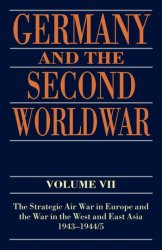The tension between the practical and cosmological aspects of music revealed itself in different ways with the development and expansion of the European universities. Some historians have looked to university statutes to assess the place of music in the curriculum (Carpenter 1958). In Paris, the statutes offer little information on the subjects taught, but other universities modeled on Paris - notably German universities - specified musical studies in their curricula. Anecdotal evidence from former university students sometimes suggests that music was taught: Johann von Jenzenstein, who studied at Paris from 1375 to 1376, attests to hearing lectures on music as a cosmological science. In Oxford, Boethius was a prescribed element of the arts curriculum from at least 1431 until the sixteenth century. Yet despite the persistence of music as a formal curricular requirement, one cannot but form the impression that it was not generally considered an important discipline. Later evidence from Oxford and Cambridge, both of which instituted degrees in music during the fifteenth century for which there were no residence requirements, suggests that these degrees were seen as the poor relation of degrees in ‘‘proper’’ academic subjects.
Nevertheless, the introduction and assimilation of Aristotelian texts directed renewed attention to the nature of music as a discipline. The second book of Aristotle’s Physics, which deals with the classification of astrology, music, and optics was formative in inspiring opinions as to the nature of music. Avicenna (Abti ‘All al-Husain ibn ‘Abdallah ibn Sina; 973/980-1037) and Averrores (Abti l-Walid Muhammad ibn Rushd; 1126-1192) were among the first scholars to comment on this matter; they later were joined by Robert Grosseteste (Commentarios in VIII libros physicorum Aristotelis), Albert the Great (Physicorum libri VIII), Thomas Aquinas (In II physicorum), and Duns Scotus (Quaestiones in octo libros physicorum Aristotelis). Aquinas referred to the problem of disciplines such as music, which seemed to confound traditional categories, as the problem of the scientiae mediae. A number of surviving university texts address the specific problem of music - including Radulphus Brito’s Questiones communes mathematice, the Questiones mathematicales by Ralph the Breton, and questions 16 and 17 of Peter of Auvergne’s sixth Quodlibet (which relies on Aristotle’s theories ofthe soul and judgment as outlined in De anima and the Nichomachean Ethics).
Scholasticism undoubtedly influenced the literature of music theory. An early example is the early twelfth-century German treatise Quaestiones in musica (ed. Steglich 1911), which anticipates the quaestiones genre that would become so familiar in the later French schools
M
And universities (on the quaestiones genre in the university context see Duhamel 2007). The summa genre, which was such a feature of thirteenth - and fourteenth-century scholasticism, was also applied to music. The Speculum doctrinale by the Dominican scholar Vincent of Beauvais (c. 1190-c. 1264) brings together authors with very different views of music such as Boethius, Isidore, Richard of St Victor, and the Arab theorist al-FarabI (whose works were by then available in Latin translations). In one sense, summae responded to the concerns underlying such early twelfth-century manuals as Honorius Augustodunensis’ De animae exsilio et patria or Hugh of St Victor’s Didascalicon, which grappled with the fracture of the accepted curriculum of the seven liberal arts on account of new studies, such as theology or canon law.
Late medieval discussions about the philosophical and cosmological natures of music occurred in tandem with the production of more practical music treatises. New technical preoccupations, such as the expansion of polyphony and rhythm, required codification and explanation through theoretical literature. Although many of these treatises were written outside the scholastic milieu, a number of university-based scholars contributed valuable practical treatises. The challenge to determine the time values of notes arising out of the development of polyphony can be seen behind the treatise of Johannes de Grocheo (fl. c. 1300), who dismissed the arithmetical speculations of Boethius in favour of an Aristotelian empiricism. Yet de Grocheo was still concerned with the nature of music, substituting a different division for Boethius’ division and following Aristotle in discussing the social uses of secular music. Jehan de Muris (c. 1290-c. 1351), who taught at Paris, reaffirmed on the authority of Aristotle and Boethius the primacy of theoretical knowledge over practical experience and gave mathematical theorems for the measurement of rhythm in contemporary mensural notation in his influential Notitia artis musicae of c. 1321. De Muris was primarily a philosopher and mathematician for whom music was a secondary interest. This is reflected in his use of the language of scholasticism, more familiar to university-trained scholars than to practical musicians. Nevertheless, the overtly scholastic technique of his writing did not diminish its importance for contemporaries. Along with Philippe de Vitry (1291-1361), de Muris sought to justify the novelties behind the new musical art of the fourteenth century - in this case from a scholastic point of view. In a sense, de Muris was engaged in the same project as the south-German circle two centuries earlier: the use of ancient philosophical wisdom to demonstrate the validity of a particular musical practice. By contrast, the conservative commentator James of Liege was appalled by the musical practices of the ars nova: his vast Speculum musicae (c. 1330) cites the relevant Greek and Roman authorities to refute de Muris and de Vitry.
The disagreements over musical practice in the fourteenth century highlight how, as the Middle Ages progressed, music theory became more practical. Technical issues dominate to the exclusion of philosophical and cosmological issues. All-round scholars comment upon music more rarely. Where they do - such as Thomas Aquinas, for example - their contribution offers little beyond the rudimentary. Thus, although the members of the south-German circle were able to make important contributions to music theory because music was an important part of their lives, later thinkers and philosophers were not because music had become a specialization in which certain practitioners were the experts. Scholars such as Jehan de Muris, who could bridge this gap, must be seen, therefore, as isolated examples. Although some philosophers would continue to speculate on music as a cosmological science, the greatest utility of “philosophy” would be in support of this or that technical practice.
See also: > Aristotelianism in the Greek, Latin, Syriac, Arabic, and Hebrew Traditions > Augustine > Boethius > Carolingian Renaissance > al-FarabI, Abu Nasr > Hugh of St. Victor > Ibn Sina, Abu 'All (Avicenna) > Isidore of Seville > John Duns Scotus > Liberal Arts > Peter of Auvergne > Platonism > Radulphus Brito > Robert Grosseteste > Thomas Aquinas > Universities and Philosophy




 World History
World History









